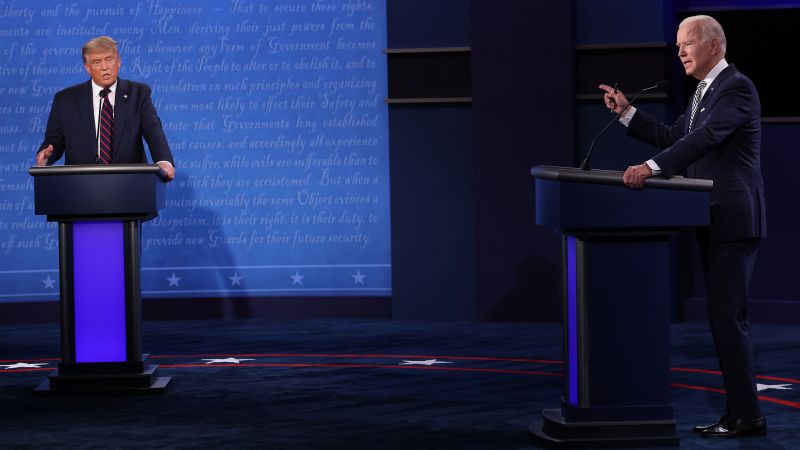President Joe Biden and former President Donald Trump have both agreed on the necessity of debating ahead of the 2024 election. The announcement of the debates came after Biden’s campaign outlined its conditions for participating, which had initially been met with skepticism from Trump’s team. Despite differences in opinion over the debate format, both campaigns recognized the importance of the debates in engaging voters and highlighting contrasts between the candidates.
The sudden resolution of the debate scheduling was a result of weeks of discussions between the campaigns, realizing the benefits of early debates for the candidates and the electorate. The debates’ earlier start date and increased number of debates were favored by Trump’s team, who believed that facing off on stage would demonstrate Trump’s strengths compared to Biden. Biden’s team also saw the value in an accelerated campaign, forcing voters to consider the potential consequences of Trump’s return to the White House.
Both campaigns expressed frustration with the Commission on Presidential Debates, which had initially set the debate schedule for mid-September. Trump’s team had requested more and earlier debates, while Biden’s team believed that an accelerated start to the campaign was essential for engaging voters before they cast their ballots. Amid concerns about the commission’s limitations, both campaigns explored alternative avenues for holding debates that aligned with their preferences.
Debate preparation for Biden will coincide with a busy campaign travel schedule and foreign trips, while Trump is contending with legal issues. The campaign teams were committed to debating each other, emphasizing the importance of voters having the opportunity to see both candidates on the same stage before making their decision. Despite upbeat announcements regarding the debates, both campaigns maintained some skepticism about whether the debates would actually take place, reflecting potential logistical and political obstacles.
Trump and his campaign have pushed for debates as a key strategy in the election, with Trump actively mocking Biden’s reluctance to engage in debates. Seeking to control the narrative around the debates, Trump announced his acceptance of a third debate on Fox News, which was promptly rejected by the Biden campaign. Both campaigns also sought to avoid debates with third-party candidate Robert F. Kennedy Jr., who could potentially sway votes from both candidates, reflecting their wariness of potential challenges in the debates.
The debate preparations and negotiations between the campaigns highlighted the strategic importance of the debates in shaping the election narrative and engaging voters early on. The campaigns recognized the need for contrasts to be presented to voters and the significance of the debates in influencing the election outcome. Despite uncertainties and challenges, both campaigns were committed to participating in the debates and strategically navigating the complexities of the debate process.


